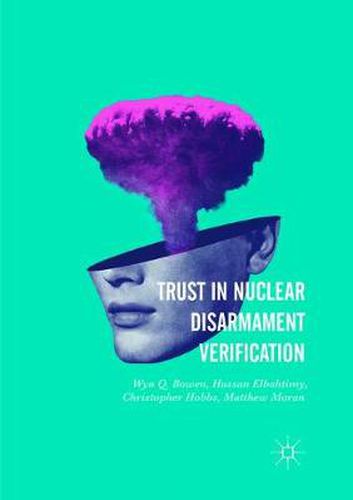Readings Newsletter
Become a Readings Member to make your shopping experience even easier.
Sign in or sign up for free!
You’re not far away from qualifying for FREE standard shipping within Australia
You’ve qualified for FREE standard shipping within Australia
The cart is loading…






This title is printed to order. This book may have been self-published. If so, we cannot guarantee the quality of the content. In the main most books will have gone through the editing process however some may not. We therefore suggest that you be aware of this before ordering this book. If in doubt check either the author or publisher’s details as we are unable to accept any returns unless they are faulty. Please contact us if you have any questions.
This book explores how human factors, in particular the contested notion of trust, influence the conduct and practice of arms control verification.
In the nuclear arena, disarmament verification is often viewed purely in terms of a dispassionate, scientific process. Yet this view is fundamentally flawed since the technical impossibility of 100 per cent verification opens the door to a host of complex issues and questions regarding the process and its outcomes. Central among these is the fact that those involved in any verification inspection process must inevitably conduct their work in a space that falls well short of absolute certainty. The lines between scientific enquiry and human psychology can become blurred and outcomes have the potential to be influenced by perceptions.
Drawing on extensive empirical evidence, the authors explore the complex interplay between evidence-based judgements and perceptions of intentions that frames the science of verification. The book provides new insights into the role and influence of human factors in the verification process, shedding light on this ‘blind spot’ of verification research. It is an invaluable resource for practitioners, academics and students working in arms control and disarmament.
$9.00 standard shipping within Australia
FREE standard shipping within Australia for orders over $100.00
Express & International shipping calculated at checkout
This title is printed to order. This book may have been self-published. If so, we cannot guarantee the quality of the content. In the main most books will have gone through the editing process however some may not. We therefore suggest that you be aware of this before ordering this book. If in doubt check either the author or publisher’s details as we are unable to accept any returns unless they are faulty. Please contact us if you have any questions.
This book explores how human factors, in particular the contested notion of trust, influence the conduct and practice of arms control verification.
In the nuclear arena, disarmament verification is often viewed purely in terms of a dispassionate, scientific process. Yet this view is fundamentally flawed since the technical impossibility of 100 per cent verification opens the door to a host of complex issues and questions regarding the process and its outcomes. Central among these is the fact that those involved in any verification inspection process must inevitably conduct their work in a space that falls well short of absolute certainty. The lines between scientific enquiry and human psychology can become blurred and outcomes have the potential to be influenced by perceptions.
Drawing on extensive empirical evidence, the authors explore the complex interplay between evidence-based judgements and perceptions of intentions that frames the science of verification. The book provides new insights into the role and influence of human factors in the verification process, shedding light on this ‘blind spot’ of verification research. It is an invaluable resource for practitioners, academics and students working in arms control and disarmament.